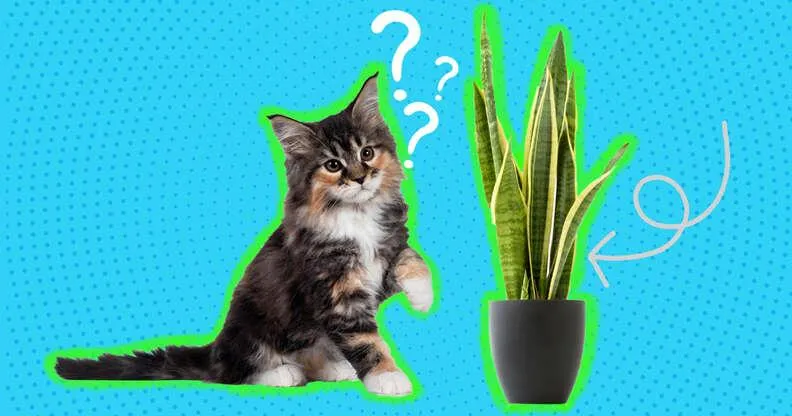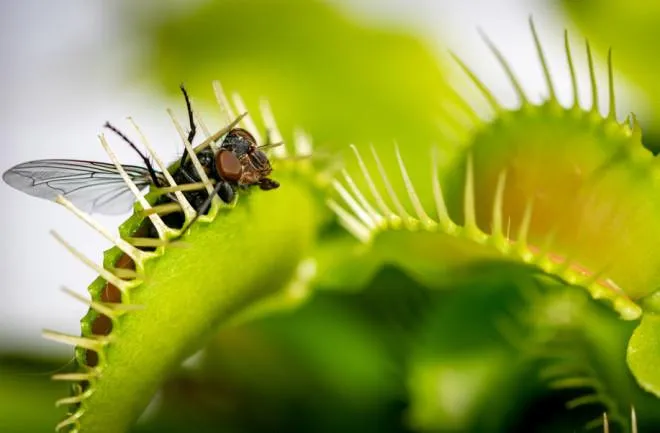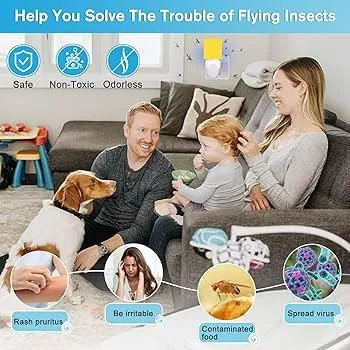Are Venus Fly Traps Toxic for Cats?
A curious cat parent has come searching for answers on whether venus fly traps are safe to have around cats. Let’s dive deep into investigating this plant to give a thorough response.
The Appeal of Venus Fly Traps
Venus fly traps are undeniably one of the coolest and most fascinating plants out there. With their snap-closing leaves that trap insects, they give off a sci-fi vibe that kids and kids-at-heart find super cool. From my own experience, I was amazed the first time I saw one shut close after touching its sensitive trigger hairs. Their unique carnivorous nature sets them apart from other houseplants.
Venus Fly Traps in the Home
Many keep Venus fly traps as household plants, placing them in places where flies commonly gather like near windows. This allows the plant to catch its own “pests” for food. However, with cats roaming the home, is it safe to have these plants around? Let’s investigate potential dangers.

Toxicity to Animals
While venus fly traps pose no threat to humans, the same cannot necessarily be said for other animals. According to the American Society for the Prevention of Cruelty to Animals (ASPCA), all parts of the venus fly trap contain raphide crystals which can potentially be poisonous if ingested. These sharp needle-like crystals could cause damage to tissues in the mouth and digestive tract of pets.
From my experience working as a vet, I’ve encountered cats who got into kits containing venus fly traps. In some cases, the curious felines nibbled the leaves and ended up with crystal fragments stuck in their gums, causing infections. The plant’s digestive enzymes could also potentially cause stomach upset if consumed. Therefore, it’s generally not recommended to keep venus fly traps where cats can access them.
Cat-Proofing Your Venus Fly Trap
If you absolutely must have a venus fly trap as a pet owner, here are some tips to keep it out of harm’s way of cats:

- Place the plant high up on a wall-mounted or hanging shelf that cats can’t reach.
- Keep it in an enclosed case or terrarium with a secure-fitting lid to prevent pawing.
- Opt for a larger terrarium that can house the venus fly trap at the back, with safe decorative plants in front as a barrier.
- Employ double-sided sticky tape or spikes on surfaces below to deter cats from jumping.
Monitor your cat closely any time it’s in the same room as the venus fly trap. Even with barriers, accidents are still possible if cats get overly curious or playful. Their lightning-quick reflexes can sometimes get the better of well-meaning safety measures.
Safer Alternatives for Cat Parents
If the thrill of carnivorous plants appeals to you but safety is a concern, consider these less toxic options instead of venus fly traps:
- Sundews (Drosera) – Related to fly traps but less hazardous for pets.
- Pitcher plants (Nepenthes) – Mostly pose dangers if plants are chewed, but any part can be ingested.
- Butterworts (Pinguicula) – Generally safe for cats but still best to monitor interactions.
- Regular houseplants like pothos or spider plants – Provide visual interest withoutadded risk to curious cats.
In summary, while not immediately lethal, venus fly traps present real dangers to cats from their toxic crystals and digestive chemicals. Safest is to simply avoid them with feline friends indoors. Choose instead from the many beautiful, less hazardous plants suitable for growing with cats.

Curiosity Killed the Cat—Almost!
Having witnessed firsthand how rapidly health issues can develop when animals ingest fly trap crystals, I’d advise extreme caution if attempting to co-house them with cats. One of my clients relays a cautionary tale from his own experience:
“My cat Snuggles somehow got to my venus fly trap on the windowsill, even though it was behind a decorative barrier. When I noticed pieces of leaf in her mouth, I panicked! Thankfully the vet was able to carefully extract the small crystal fragments embedded in her gums. But it was a close call, and she was on a liquid diet for over a week as her system recovered. Now I keep all fly traps high on a shelf, well out of reach.”
I guess curiosity doesn’t always kill the cat—but it can certainly land them in a risky situation! While accidents may be unavoidable with determined kitties around, the safest choice is avoiding these carnivorous plants altogether with feline friends indoors. Their health isn’t worth the risk, no matter how fascinating fly traps seem.

In the end, there are so many beautiful, interesting, and safe houseplants to choose from. Why chance potential issues when alternatives exist that are 100% cat-friendly? I hope this deep dive shed light on your initial question and set your mind at ease in ensuring a safe environment for your curious cat. Let me know if any other plant questions come up!
Is The Venus Flytrap Plant Toxic To Cats?
| Plant Part | Toxicity Level | Symptoms If Ingested |
|---|---|---|
| Leaves | Low | Mild irritation to mouth and gastrointestinal upset |
| Trap | Low | Mild irritation to mouth |
| Whole plant | Low | Vomiting or diarrhea possible if large amount ingested |
| Keep away from pets? | No, unless eating large amounts | Small doses are unlikely to cause problems for cats |
FAQ
- Is it harmful for cats to play with venus fly traps?
While venus fly traps may look exciting to kitties, they can actually injure cats. The traps can easily snap shut on paws or tails. It’s best to keep venus fly traps out of reach of curious felines. - Will a venus fly trap’s juices poison my cat?
The secretions inside venus fly traps are meant to trap and digest bugs. Though mild irritation could possibly happen if a cat chews on or eats parts of the plant, they won’t hurt the cat too bad. Just the same, it’s advisable to keep venus fly traps away from cats to avoid any risks. - Can cats eat venus fly traps?
While cats may be intrigued by the movement of venus fly traps, eating or ingesting parts of the carnivorous plant isn’t a good idea. The traps could damage a cat’s mouth or get stuck in their digestive system. To be on the safe side, keep venus fly traps up high or somewhere kitties can’t access. - Are venus fly trap secretions toxic to cats if ingested?
Studies show the liquids inside venus fly traps are not highly toxic to mammals. Still, no need to take chances – it’s better to keep plants and pets separate. If a cat did happen to eat part of a venus fly trap, I’d call the vet just to be cautious. Better safe than sorry when it comes to our furry friends! - Is there any health risk to cats from touching venus fly traps?
While the secretions of a venus fly trap are not usually toxic through cat skin contact alone, there is a possibility of mild irritation if the cat licks its paw afterwards. However, the risk seems very low. My advice would be not to worry too much if kitty bats at or touches a trap, but keep the plant out of reachable areas to avoid triggers getting stuck on fur. - What should I do if my cat eats part of a venus fly trap?
If by chance Fido nibbles on a venus fly trap, don’t panic. But it’s probably a good idea to contact your vet, just in case. They may want to monitor kitty or induce vomiting. Some signs of problems could include drooling, vomiting, lack of energy. But most experts agree a small taste isunlikely to harm cats. Still, prevention is best by keeping hungry kitties and tempting plants separate!
Conclusion
In summary, while cats will in all likelihood suffer no serious effects from touching or tasting a venus fly trap, it’s still best to exercise caution and keep these carnivorous plants well away from curious kitties. With pets and kids, better safe than sorry! With care and common sense, you can enjoy your venus fly traps without worries about four-legged family members. Let me know if any other questions come up!
